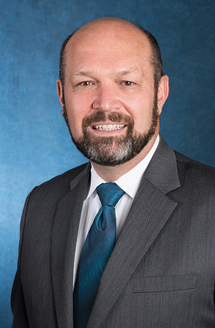
Richard C. Friedberg, MD, PhD
Our ability to stay current with science and explain its potential is a critical variable in the quality of care our patients receive. As a department chair and laboratory medical director, I encourage each member of our group to embrace a coordinated approach. I expect them to develop the flexibility to ensure we can provide substantial knowledge and expertise. Successful leaders will pursue these goals (sometimes over the objections of individuals) because modern medicine is a team sport. In our practices, the ability to apply many sophisticated tools is a baseline expectation that enables us to pursue clinical utility—always a moving target. The level of synchrony between our skills and those most helpful to patients and providers will be the metric that defines our value.
As we continue to adapt to mandated coordinated care, primary care physicians will be seeing more patients and more complicated cases and working with more midlevel providers. They will need our help to navigate the biotechnology expansion. Whether tailoring our test menus to be more accessible, simplifying the language in our reports to make them more clear, or participating in more patient conferences to explain lab-driven innovations, we will be busy. With apologies to Mark Twain, reports of our disintermediation have been greatly exaggerated.
We will also need to continue to refine our role in training our successors. Some believe that we provide our trainees’ education. There’s an element of truth there, but it’s woefully incomplete. Senior pathologists shape the content and character of what trainees and new-in-practice partners learn. We come up with options, tools, and expectations. The right pieces in the right places will encourage a flexible posture and commitment to lifelong learning. We don’t provide; we enable.
They pursue; we facilitate.
We facilitate, for example, by helping trainees and new-in-practice partners understand that asking the right question at the right time can be the optimal medical intervention. As an educator, I encourage those questions because they enable colleagues to absorb what it means to be a pathologist. I want them to consider that sometimes the answers elude us because we haven’t asked the right questions. That over the course of their careers, few things will matter more than knowing what they don’t know. That they need to ask the right people the right questions, whether by becoming a leader in the practice, a member of the CAP, or a fully engaged participant in the greater medical community.
Focus matters, but it can be too much of a good thing. I have seen recently qualified applicants who expect to perform only the tasks they were specifically trained to handle. They have the cerebral horsepower to do far more, but their expectations do not match their capabilities. The most successful people I’ve known have been those who embraced the attitudes that exposed their aptitudes.
It is part of our job, as leaders, to consider how well we communicate our expectations. We may need to explain that while morphology is an important data element, it is but one of several that we integrate into our work. Our discipline incorporates many skills, some relatively novel and others more traditional. Newly minted pathologists are a work in progress. They bring an impressive package of talents and skills to the workplace, but that’s just the template. While efficiency and proficiency are essential, survival requires peripheral vision. So we look to give them choices.
Not long ago, I was in Washington, DC, where our youngest is a college student. She had heard about a new restaurant with a menu offering only thinly sliced steak and fries. The server circulated with a hot skillet and a set of tongs, stopping at each table three times: twice to serve and once with the bill. Dinner was beautifully prepared, simple, elegant. The limited menu reminded us of a local favorite restaurant in Birmingham, Ala., housed in a minimally remodeled former gas station that served only ribs and white bread. They were known for a weathered sign on the back wall: No Fries–No Chicken–Don’t Ask. A meal there was simply prepared, traditional, and wonderfully messy.
On the surface, the two restaurants couldn’t have been more different, but deep down they had much in common. The DC restaurant had tablecloths and cutlery and was in a trendy neighborhood within a big city. No Fries–No Chicken–Don’t Ask had none of that. They did share a common vision with common strengths and vulnerabilities. Both had identified a specific niche in the local market. Both were highly successful. And either could be out of business in short order if popular trends were to shift or a specific foodborne illness scared their customers away. Overspecialization is always a risk.
To extend the analogy, limited options can have outsized impact on patients in areas with fewer health care choices. Had we wanted a salad (or fries or chicken) in the above examples, we could have found it nearby. But patients in communities where necessary testing is not locally available do not have that option. This—not competitive advantage—is what drives our responsibility to become proficient in a diverse menu of pathology services. Our choices should not limit their options.
Pathologists choose to work at the cutting edge, to engage with promising technologies, the potential of which we explore and reveal. This confers a wide-angle view of that space where science and patient care intersect. It is also why we cannot simply train to get a job. We must train to be continually trained—on our first day and on our last.
[hr]Dr. Friedberg welcomes communication from CAP members. Write to him at president@cap.org.
 CAP TODAY Pathology/Laboratory Medicine/Laboratory Management
CAP TODAY Pathology/Laboratory Medicine/Laboratory Management
